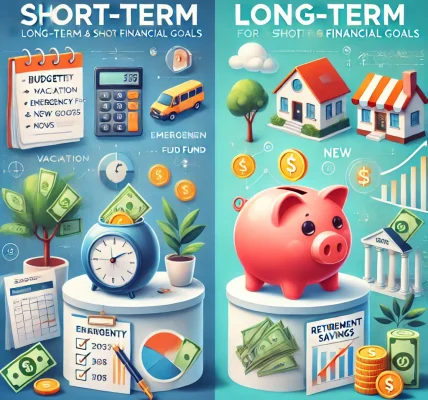The rising cost of living is a challenge that affects many individuals and families worldwide. With inflation, higher prices for everyday essentials, and increased housing costs, it’s becoming more difficult to maintain a comfortable lifestyle without making adjustments to your finances. The good news is that with some proactive planning and smart financial decisions, you can adjust your budget to accommodate these changes without sacrificing your quality of life.
In this blog, we will explore practical strategies and actionable tips to help you adjust your budget for the rising costs of living. Whether you’re dealing with inflation, increasing rent, or higher prices at the grocery store, these strategies will guide you in managing your money effectively.
1. Review and Reassess Your Current Budget
The first step in adjusting your budget for the rising costs of living is to take a good look at your existing budget. Review your income, expenses, and savings goals. Take note of any areas where costs have increased, such as higher gas prices, increased utility bills, or more expensive groceries. This will give you a clear picture of where your money is going and where adjustments need to be made.
Tip: Make sure to include all of your fixed expenses (rent, utilities, loans) and variable expenses (groceries, entertainment, transportation). Identify which costs have risen and by how much.
2. Prioritize Essential Expenses
When facing higher costs, it’s important to focus on the essentials. Make sure that you’re covering your needs—housing, utilities, food, transportation, and health care—before spending on discretionary items. If you find that your income isn’t enough to cover everything, this is the time to make tough decisions and consider cutting back on non-essential expenses.
Tip: Consider lowering non-essential expenses like dining out, entertainment subscriptions, or impulse shopping. This will help free up money for more critical needs.
3. Find Ways to Cut Back on Discretionary Spending
Discretionary spending includes things like eating out, entertainment, travel, and shopping for non-essential items. With the rising cost of living, these are often the first areas where people can cut back without sacrificing too much. By reducing unnecessary spending, you can create more room in your budget for essential expenses.
Tip: Try cooking at home more often, cancel unused subscriptions, limit shopping for non-essentials, and explore free or low-cost entertainment options. These small adjustments can add up to significant savings.
4. Look for Ways to Save on Groceries
Grocery prices have seen a significant increase in recent years, and it’s one of the most noticeable areas where costs rise. Fortunately, there are many ways to save on groceries without compromising on quality or nutrition. Planning meals, shopping sales, and buying in bulk are just a few strategies that can help you reduce food expenses.
Tip: Make a grocery list and stick to it. Take advantage of coupons, sales, and discounts, and buy store-brand items instead of name-brand products. Shopping at farmers’ markets or discount stores can also save money.
5. Adjust Your Housing Budget
Housing is often the largest expense in a household budget, and rising rent or mortgage rates can have a significant impact on your overall budget. If you’re finding it difficult to keep up with housing costs, it may be time to explore options for reducing this expense.
Tip: If you’re renting, consider moving to a more affordable area or negotiating with your landlord for a lower rent. If you own your home, refinancing your mortgage to a lower interest rate could lower your monthly payment. If necessary, consider downsizing to a smaller living space.
6. Increase Your Income
If cutting back on expenses isn’t enough to balance your budget, consider finding ways to increase your income. This could involve asking for a raise at work, starting a side hustle, or exploring freelance or part-time job opportunities. Increasing your income can give you more flexibility in your budget and help you offset rising living costs.
Tip: Look for side jobs or freelance opportunities in areas where you have skills or experience. Many online platforms offer opportunities for remote work that can fit into your schedule.
7. Track Your Spending More Closely
As living costs rise, it’s essential to track your spending more closely to avoid falling into the trap of overspending. Using a budgeting tool or app can help you monitor where your money is going and ensure that you’re staying within your limits.
Tip: Use apps like Mint, YNAB (You Need a Budget), or PocketGuard to track your expenses. These tools can help you visualize your spending patterns and identify areas where you can cut back.
8. Reevaluate Your Savings Goals
With higher living costs, you may find it harder to save as much as you’d like. However, it’s still important to set savings goals and prioritize building an emergency fund. Even small contributions can add up over time and provide you with a financial cushion in case of unexpected expenses.
Tip: Set realistic savings goals based on your current income and expenses. Try to save a small percentage of your income each month, even if it’s only $20 or $50. Automating your savings can help ensure consistency.
9. Consider Refinancing Debt
If you have debt, the rising costs of living may make it harder to keep up with your payments. Refinancing high-interest debt—such as credit card balances or personal loans—could help lower your interest rates and monthly payments, making it easier to manage.
Tip: Shop around for refinancing options that offer lower interest rates or better repayment terms. Consider consolidating high-interest debt into a single loan to simplify payments.
10. Stay Flexible and Adapt
One of the most important things to remember when adjusting your budget for rising costs is to remain flexible. Your budget will need to adapt over time as costs continue to rise or your income changes. Regularly review your budget and make adjustments as necessary to ensure that you stay on track and continue to meet your financial goals.
Tip: Revisit your budget every few months to reassess your expenses and goals. Life changes, and so should your budget. Staying adaptable will help you navigate rising costs with ease.
Conclusion
The rising costs of living are an unavoidable reality, but they don’t have to derail your financial stability. By taking proactive steps to adjust your budget, cut back on unnecessary spending, and explore ways to increase your income, you can maintain control over your finances. Regularly reassessing your budget and staying flexible will allow you to adapt to changing circumstances and continue to work toward your financial goals.




